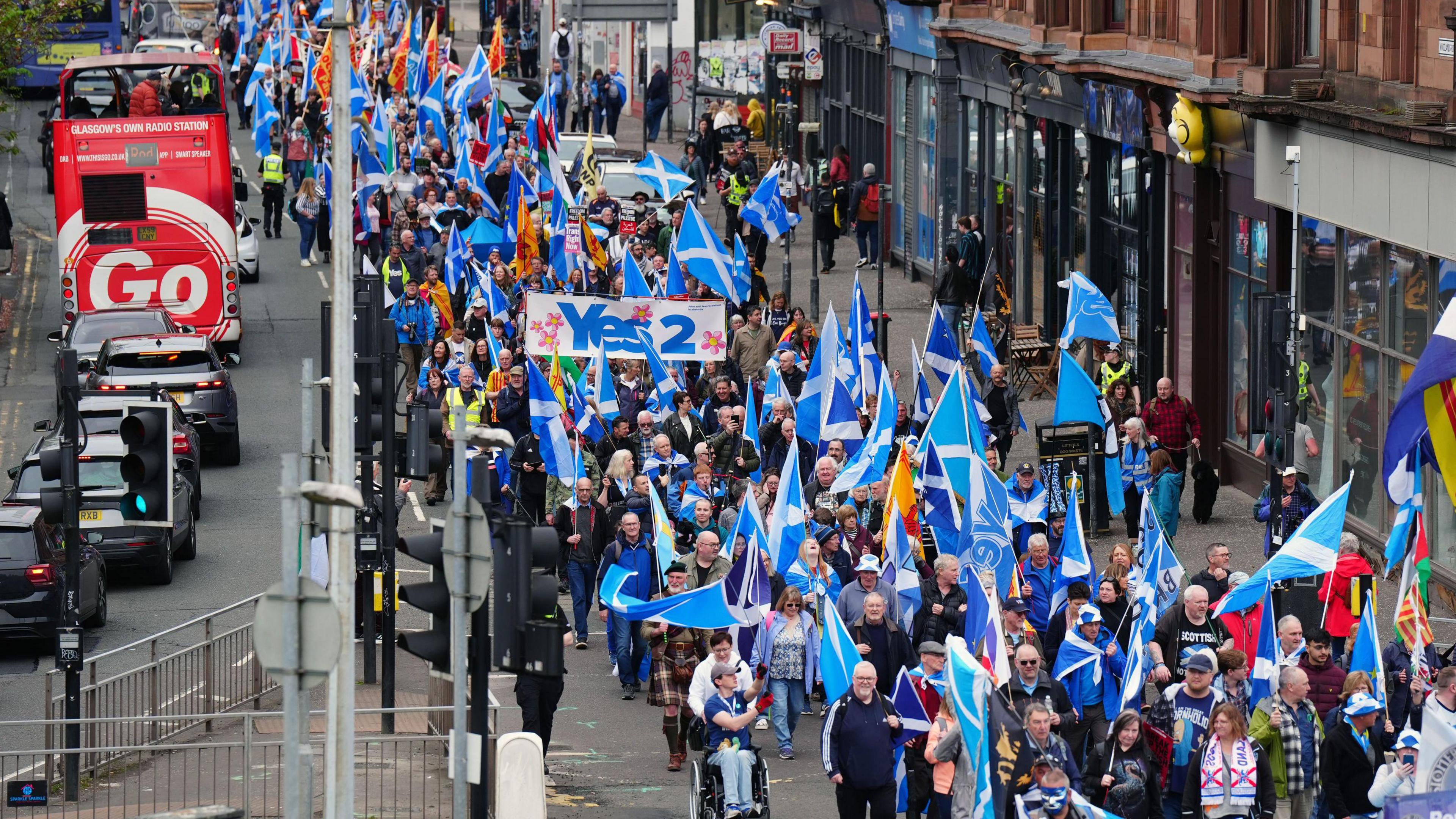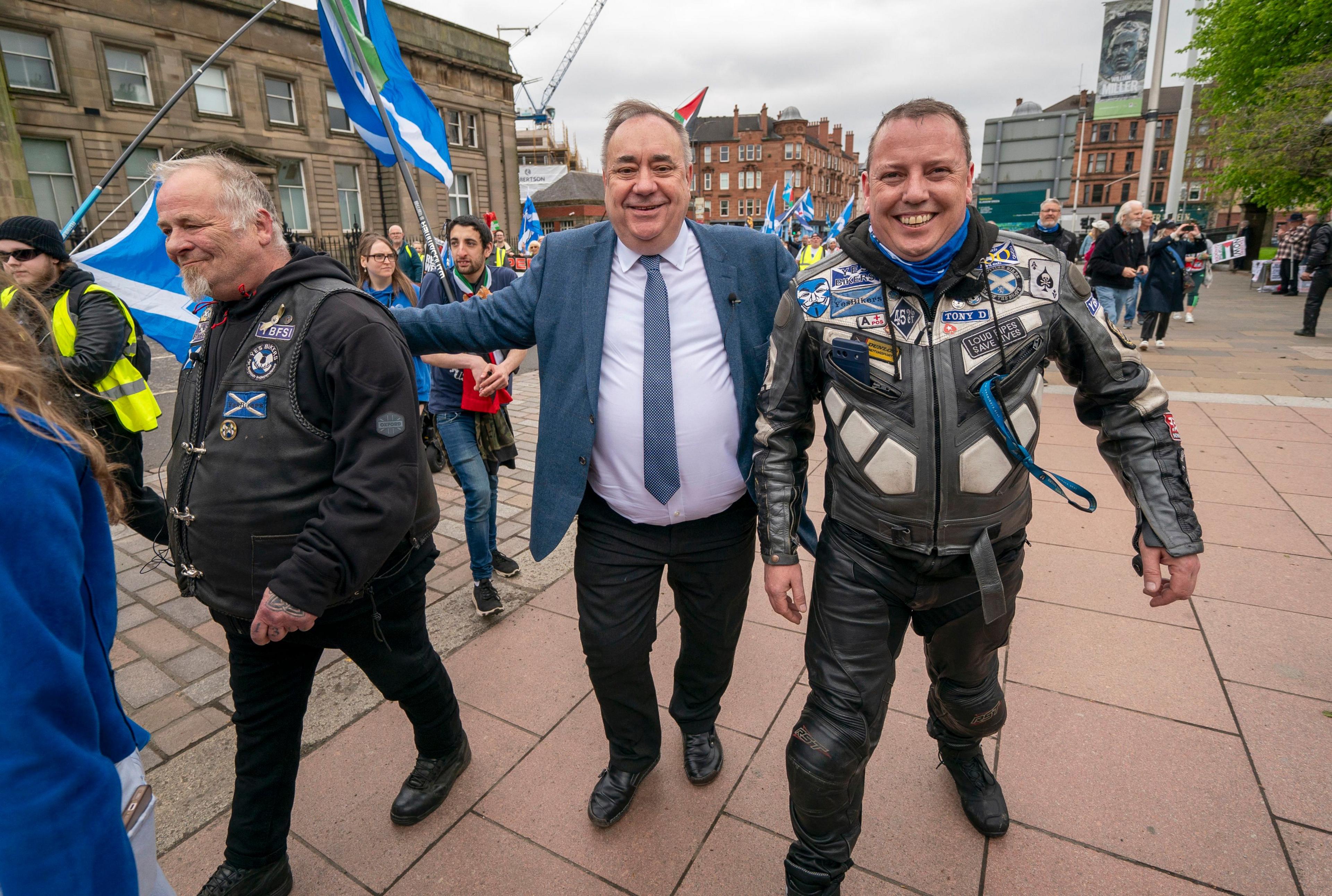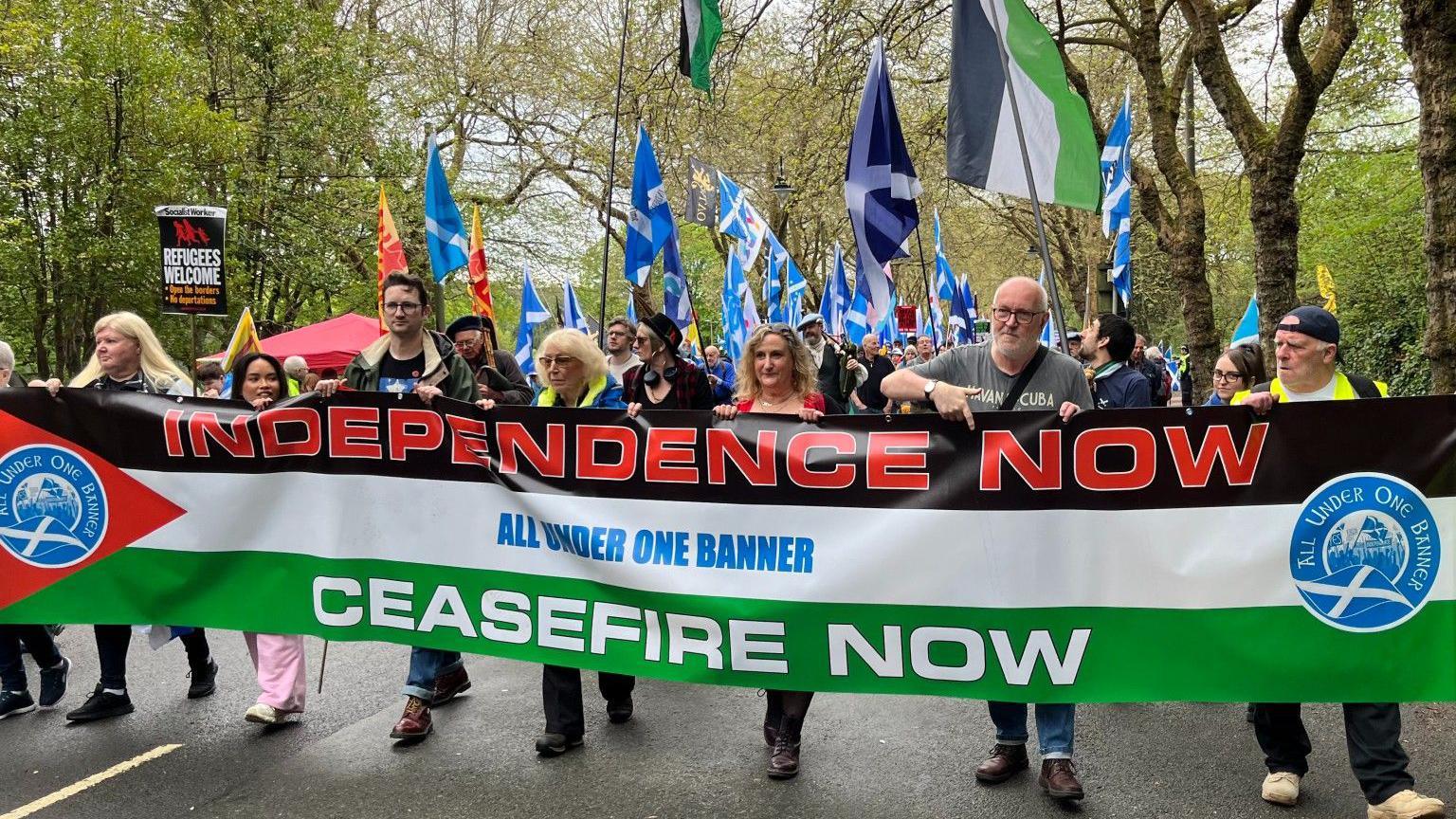Hundreds take part in march for Scottish independence
Hundreds take part in march for Scottish independence
- Published
Hundreds of people have taken part in a march through Glasgow in support of Scottish independence.
The procession, organised by All Under One Banner, set off from Kelvin Way in the city's west end at about 11:30.
It comes days after Humza Yousaf quit as first minister, saying independence "feels frustratingly close" in his resignation speech.
His likely successor, John Swinney, told BBC's Newsnight the SNP would have “win more hearts and minds” on the matter first.

Hundreds of independence supporters marched through Glasgow on Saturday
Will John Swinney change the SNP’s fortunes?
- Published4 May 2024
Yousaf says he 'paid price' for upsetting Greens
- Published1 May 2024
The march headed along Sauchiehall Street before making its way to Glasgow Green.
Speakers there included SNP MP Alison Thewliss and Alba MP Kenny MacAskill, with Alba leader Alex Salmond also seen in the crowd.
Many participants carried pro-Palestinian flags and banners which called for a ceasefire in Gaza, amid the ongoing conflict with Israel.

Mr Salmond told BBC Scotland News that the SNP needed to "re-focus on independence" once they elect a new leader, and "move away from the identity agenda and towards the people’s agenda."
He added: "The SNP is in trouble because it hasn’t focused on independence – it should drop all this self-identification stuff, defend the rights of women and children in Scotland and focus on the people’s priorities, such as jobs, health and housing."
Mr Salmond declined to confirm whether the Alba Party's sole MSP, Ash Regan, would support the SNP's new first minister, saying it would depend on what they had to say.
He also said he was disappointed Humza Yousaf had declined to work with Ms Regan, saying focusing on independence "should not have been a high bar for Humza to leap over."

The march comes at a pivotal time for the independence movement, following the collapse of the SNP's power sharing deal with the Scottish Greens.
Mr Yousaf made the decision to abruptly end the agreement just 48 hours after saying he had no intention of doing so.
This angered the Greens and left him struggling to secure enough support in order to lead a minority government.
Facing two votes of no confidence that he was not certain to win, he then resigned as first minister on Monday - 13 months after stepping into the role.
Former Deputy First Minister John Swinney, who led the SNP between 2000 and 2004, is widely expected to win the leadership unopposed after former leadership candidate Kate Forbes confirmed she would not challenge him.
Mr Swinney said the party was not as "cohesive" as it should be but he could bring it "back together".
Nominations for the SNP leadership close at noon on Monday.